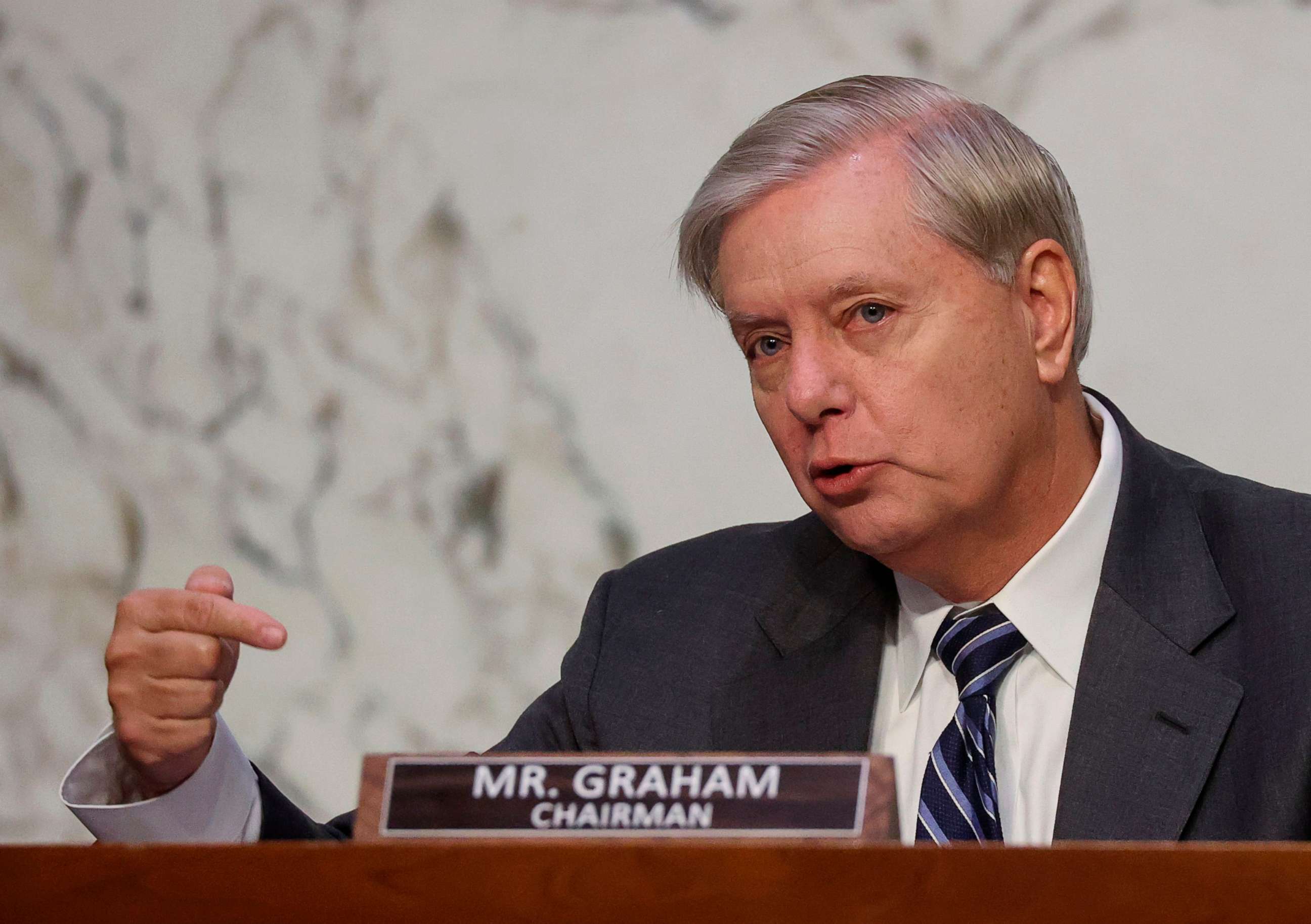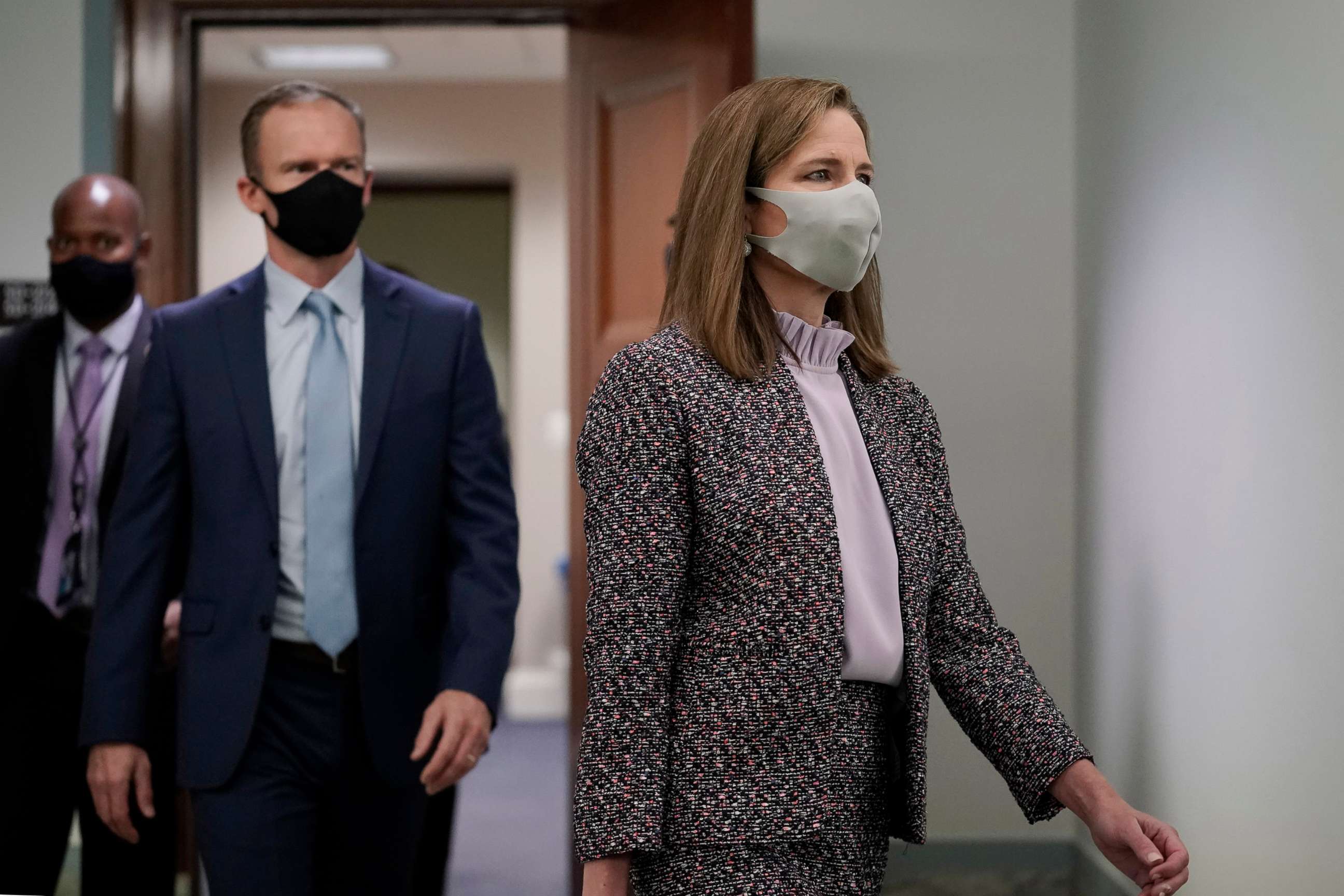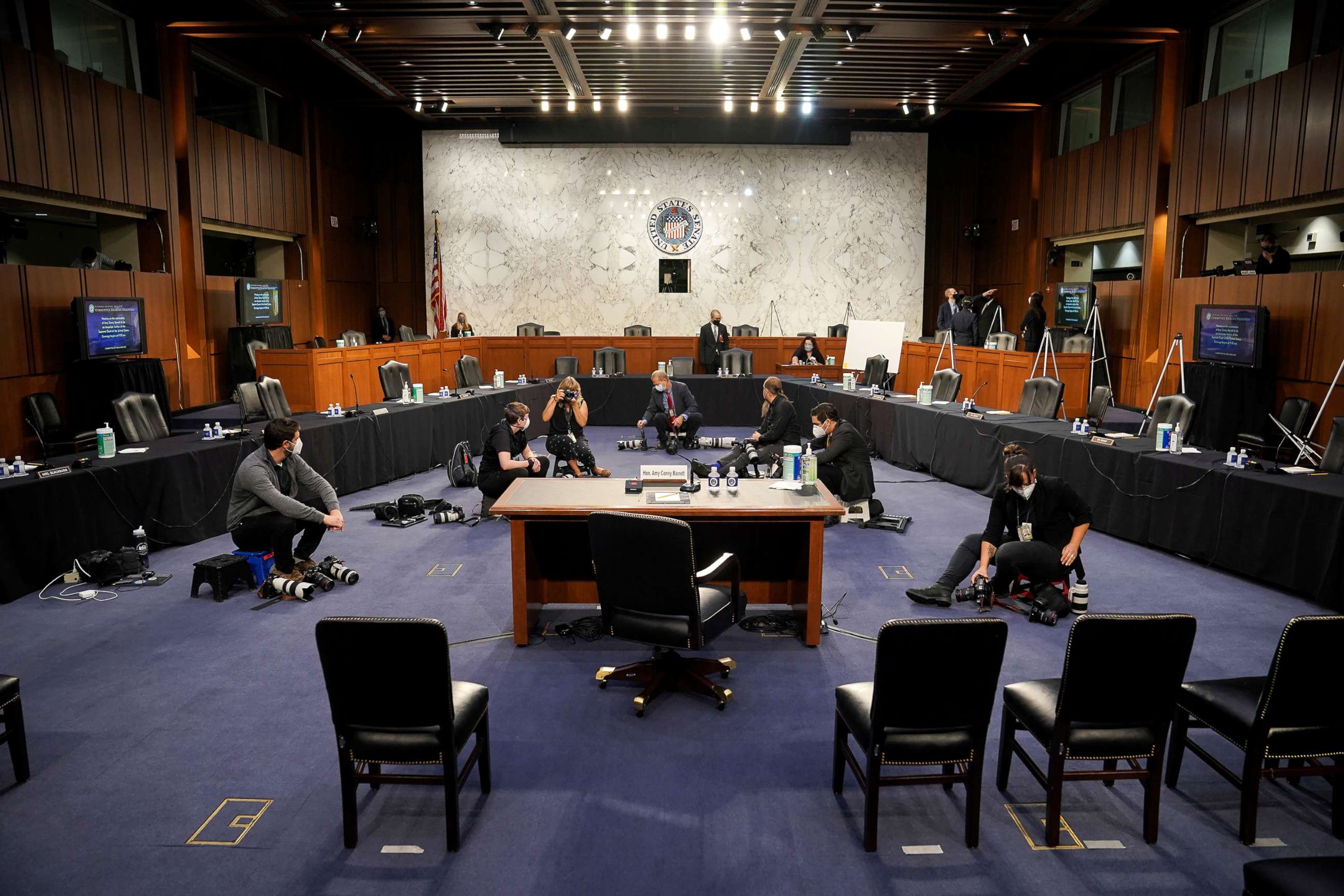Feinstein follows up on 'severability,' presses Barrett on voting rights
Sen. Dianne Feinstein, D-Calif., the committee's top Democrat, followed up on the doctrine of severability, central to the Affordable Care Act case being argued before the Supreme Court on Nov. 10, asking Barrett for her definition of it.
"The doctrine of severability as it's been described by the court, you know, serves a valuable function of trying not to undo your work when you wouldn't want a court to undo your work," Barrett said. "Severability strives to look at a statute as a whole and say: Would Congress have considered this provision so vital that -- kind of in the Jenga game, pulling it out -- Congress wouldn't want the statute anymore?"
"Insofar as it tries to effectuate what Congress would have wanted, it's the Congress and court working hand in hand," she said.
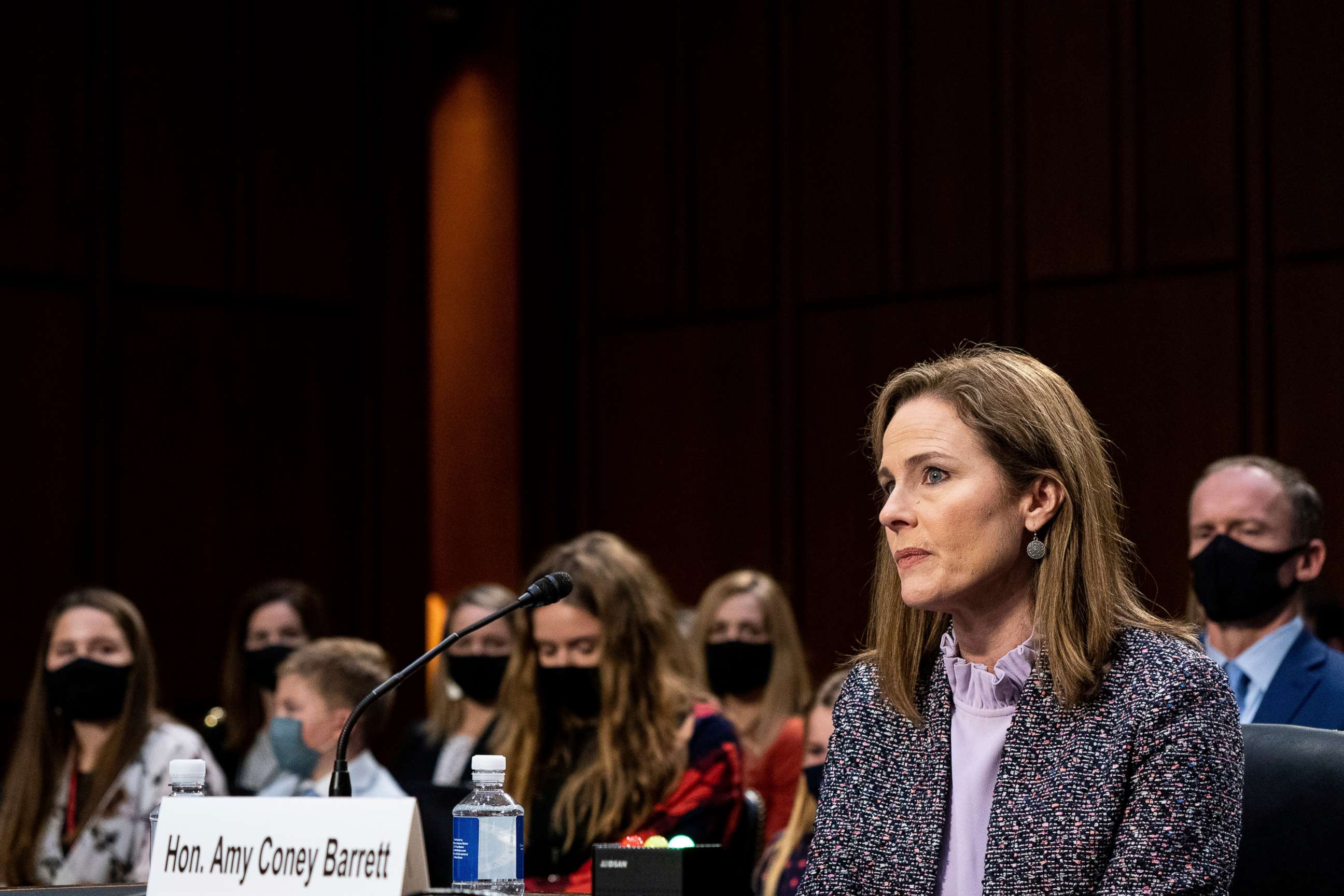
Feinstein said she was "impressed" at the response -- but when they moved along to voting rights, the senator was not satisfied with Barrett.
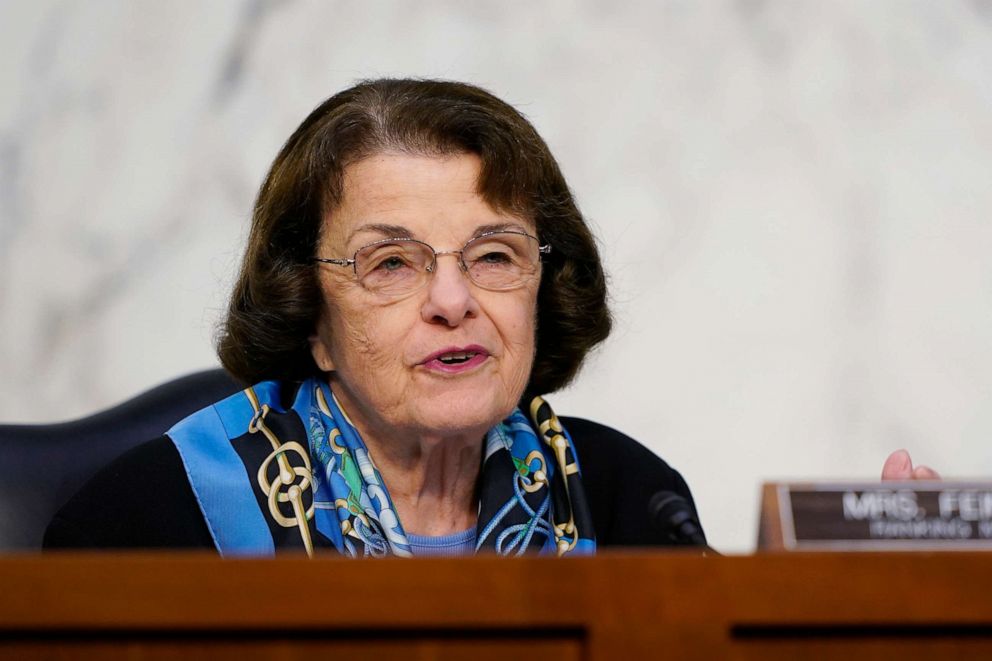
Feinstein raised Justice Scalia’s questioning during oral arguments in the 2013 case Shelby County V. Holder in which he questioned strong congressional support for re-enactment of the Voting Rights Act.
"Do you agree with Justice Scalia's assertion that the Voting Rights Act is a, quote, 'perpetuation of racial entitlement' end quote?" Feinstein asked.
Barrett said she can’t opine on the issue.
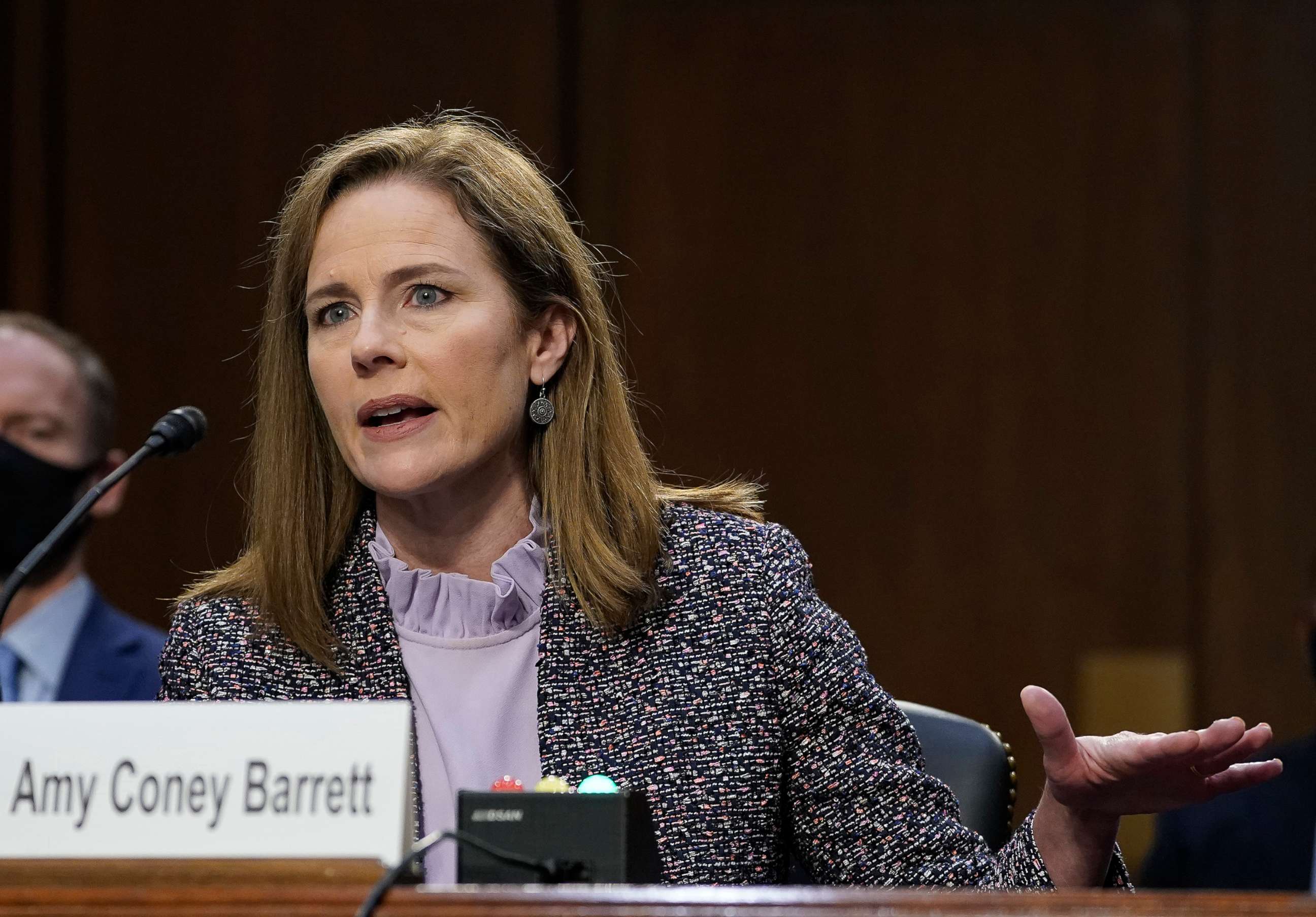
"Senator Feinstein, I can't -- I don't obviously know what Justice Scalia was thinking when he said that. And any characterization of the Voting Rights Act or a statement like that is simply really not something I can opine on. Because, you know, that's tied in, I would think, with the Shelby County questions,” Barrett said.
"I'm not asking for a formal opinion. But would you believe that it's a perpetuation of racial entitlement?" Feinstein pressed.
"Senator Feinstein, I think that goes to the question of whether the coverage formula was outdated and needed to be updated from the 1960s or not. I take that to be the thrust of the disagreement in Shelby County and the position that Justice Scalia was taking. So again, I can't express a view on Shelby County and whether the majority or dissent had the better of the argument," Barrett said.
